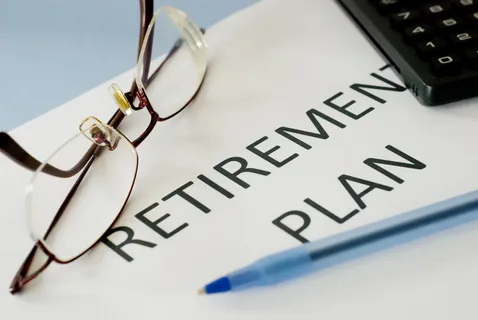Ever wonder what your golden years might look like? Picture this: sipping coffee on your porch, traveling, or finally pursuing those hobbies you always put on the back burner. But let’s get real — none of that happens without proper financial planning for retirement.
So many people put off retirement planning, only to regret it later. Don’t be one of them! This guide will break down exactly what you need to know, from investment advice to budgeting hacks, in a simple, conversational way. Ready to secure your future? Let’s go!
Understanding Retirement Financial Planning
Retirement financial planning is more than just stashing money away. It’s designing a roadmap that gives you peace of mind and the freedom to enjoy life on your own terms. Think of it as building a safety net for your future self.
Why Planning Early Matters
Why wait? Starting early is like planting a tree — the sooner you start, the stronger it grows. With more time, you benefit from compounding, can ride out market ups and downs, and face less stress. It’s about giving yourself options, flexibility, and a worry-free retirement.
Common Misconceptions
A lot of folks think, “I’ll never have enough anyway, so why bother?” or “Social Security will cover me.” Sorry to burst the bubble, but relying on Social Security alone is rarely enough. Another myth? “I’m too young to think about retirement.” The truth is, the younger you start, the easier it gets.
Key Components of a Retirement Plan
A smart retirement plan isn’t built overnight — it’s a combo of smart strategies and realistic goals.
Savings Strategies
Pay yourself first — always! Automate a chunk of every paycheck into a retirement account so you don’t even have to think about it. Whether it’s 10%, 15%, or more, consistency is what counts.
Budgeting for Retirement
Have you tried picturing your monthly costs after retirement? Housing, food, healthcare, hobbies, travel — list them all. Then estimate your total retirement income. If there’s a gap, you’ll know what you need to start saving today.
Emergency Funds
Life loves curveballs. An emergency fund is your personal financial seatbelt. Keep at least 6 months of expenses handy so that a surprise bill doesn’t derail your retirement plan.
Investment Advice for Retirement
Alright, let’s talk about investment advice. If saving is like building a foundation, investing is how you build the house.
Diversification
You wouldn’t put all your eggs in one basket, right? Same goes for your investments. Spread them out across different asset classes to minimize risk.
Risk Tolerance
Everyone’s different. Some people sleep well with a bumpy ride in stocks; others hate it. Know your risk tolerance and invest accordingly — otherwise, you’ll panic when the market gets shaky.
Asset Allocation
Mixing your assets wisely is like choosing the right recipe. Stocks, bonds, and real estate all have a role.
Stocks
Stocks can offer great growth, but they’re more volatile. Younger investors might lean heavier on stocks since they have time to recover from dips.
Bonds
Bonds are steadier but grow more slowly. As you approach retirement, you’ll probably shift more of your portfolio to bonds.
Real Estate
Real estate can be a solid investment if done wisely — think rental income or even downsizing and using equity later.
Retirement Accounts and Tools
Here’s where the magic happens: retirement accounts.
Employer-Sponsored Plans
401(k)s and pensions are the heavy hitters. Contribute enough to get your employer match — it’s free money!
Individual Retirement Accounts (IRA)
Roth or traditional? Roth IRAs grow tax-free, while traditional IRAs give you a tax break today. The choice depends on whether you want tax perks now or later.
Health Savings Accounts (HSA)
If you’re eligible, an HSA is like a secret weapon — tax-deductible, grows tax-free, and can be used for medical expenses in retirement. Triple tax advantage!
Avoiding Retirement Planning Mistakes
Let’s talk potholes to dodge.
Underestimating Expenses
Retirement can be more expensive than you think. People often overlook things like travel, gifts, or rising food costs.
Forgetting Healthcare Costs
Healthcare costs skyrocket as you age. Factor in Medicare premiums, copays, and long-term care.
Ignoring Inflation
Inflation is sneaky — your money loses buying power over time. Plan to grow your nest egg so you stay ahead of rising costs.
Working with a Financial Advisor
Think of a financial advisor as your retirement coach. They help you see the big picture and avoid rookie mistakes.
What to Look for in an Advisor
Find someone with credentials (like CFP®), good reviews, and who takes the time to explain things in plain English.
Fee Models
Some advisors get paid hourly, others by a flat fee, and some through commissions. Make sure you understand exactly what you’re paying for.
Retirement Lifestyle Planning
Money is awesome, but what’s retirement really for? Enjoying life!
Travel, Hobbies, Family
Whether you dream of a cruise around the world or gardening in your backyard, retirement should be fulfilling. Plan for the life you want, not just the money.
Housing Decisions
Will you stay put? Downsize? Move closer to the grandkids? Housing is a huge part of your retirement vision.
Final Checklist for Retirement Planning
Let’s recap with a simple checklist:
- Start early
- Automate your savings
- Diversify investments
- Estimate expenses
- Don’t ignore healthcare costs
- Factor in inflation
- Consider working with an advisor
- Plan for a meaningful lifestyle
Conclusion
Retirement isn’t a finish line — it’s a new beginning. With the right financial planning for retirement and smart investment advice, you can create a future that’s not just secure but exciting. So take a deep breath, start today, and give your future self the gift of freedom and peace of mind.


